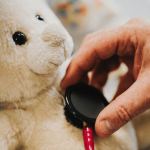This week, we round up recent COVID-19 news: Independent SAGE’s 1-year anniversary, patent-free vaccines, data sharing, and impacts on open access research and public engagement. We also check out the new ScienceDirect syndication pilot and take an alternative look at ‘predatory’ publishing.
To read:
One year anniversary of Independent SAGE via Health Policy | 45-minute read
Independent Scientific Advisory Group for Emergencies (SAGE), an unofficial group of UK-based scientific experts and professionals, was founded during the COVID-19 pandemic to communicate scientific data and provide evidence-based recommendations to the public, following concerns over the transparency of official government advice. Since May 2020, Independent SAGE have held regular public briefings on a range of COVID-related issues, from vaccine safety to long COVID. This article explores the relationship between science and policy, and reviews the key issues that emerged during the first year of Independent SAGE.
Patent-free COVID-19 vaccine via The Observer | 5-minute read
Researchers from the Texas Children’s Hospital Center for Vaccine Development who are developing a new COVID-19 vaccine have revealed that they do not intend to seek patent protection for their vaccine. The team of researchers want their vaccine, Corbevax, to be affordable and accessible. Corbevax is made using traditional vaccine technology, making it easier to produce and distribute than mRNA vaccines. As such, low-income countries – many of which have low vaccination rates – should have the capacity to generate their own supply. The move comes after disagreements between Moderna and the National Institutes of Health over who owns the patent rights to the Spikevax vaccine.
Natural History Museum digital collection reaches 5 million milestone via Natural History Museum | 5-minute read
This week, the National History Museum digitized its 5 millionth specimen. The Museum’s digital collection, which can be freely accessed, has already helped researchers tackle issues such as climate change and COVID-19 through data sharing. In its press release, the National History Museum states that the economic benefits of digitizing its collection could be worth more than £2 billion.
Selected content to be syndicated on ScienceDirect via The Scholarly Kitchen | 6-minute read
Over 70 000 articles in 35 journals will be integrated with Elsevier’s content on ScienceDirect in a pilot syndication project involving the American Chemical Society, the Royal Society of Chemistry, Taylor & Francis and Wiley. By juxtaposing articles with others in the same disciplinary field, this pilot will allow publishers to enhance their content discovery and delivery. In addition, investment in site infrastructure, such as the Get Full Text Research tool, will provide a streamlined and integrated user experience.
Democratizing publishing or dodgy spammers? via LSE Impact Blog | 6-minute read
Given that book deals with the most elite academic publishers aren’t easy to come by, some authors must choose to publish with those perceived to have lower academic credibility. A recent study sought to find out more about ‘predatory’ publishers by responding to automated ‘Dear Professor …’ emails from Lambert Academic Press and Cambridge Scholars Press, and by speaking with affiliated authors. However, with most Lambert authors based in Africa and unable to access existing cultures of academic credibility, this study counters that they are not being duped by predatory tactics but are choosing a way to quickly and easily get their work seen.
To engage with:
Virtual workshop on COVID-19 research via Friends of the NLM
On 26 January 2022, Dr Patricia Flatley Brennan (Director of the National Library of Medicine [NLM]) will present some of the key lessons learned from the COVID-19 pandemic, including the importance of open access content during public health emergencies. Following this keynote talk, a series of panel discussions will explore the accelerated publication processes and the various search and curation strategies that were developed in response to the wealth of COVID-related studies. Register for the virtual workshop for free on the Friends of the NLM website.
Have you read our recommendations for plain language summaries of peer-reviewed medical journal publications? Find out more here and join the discussion on social media using the hashtag #PlainLanguageSummaries!






